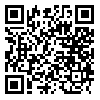Volume 18, Issue 4 (11-2019)
TB 2019, 18(4): 62-78 |
Back to browse issues page
Islamic Azad University, Gachsaran Branch , mehdi.shafiazadeh@gmail.com
Abstract: (2364 Views)
Introduction: Kidney transplant recipients, as chronic patients, need lifelong self-management. Therefore, identification of the effective factors is helpful in strengthening the individuals' adherence and planning self-management in the post-transplant period. However, the empirical research on this area is limited. The purpose of this study was "Explaining self-management determinants in kidney transplant recipients according to the health belief model".
Methods: This qualitative content analysis was conducted in Kohgiluyeh and Boyer Ahmad province. The participants were included in the study by purposive and theoretical sampling methods until theoretical and classical saturations were achieved. The data were collected and analysed using 24 semi-structured interviews by 19 participants (14 transplant recipients, 4 family members, and a patient with a history of transplant rejection). The MAXQDA10 software was used to organize and manage the data.
Results. After analysing the data, 264 primary conceptual codes were extracted. The findings were reported in 20 sub- categories and in accordance with six categories of the health belief model (perceived susceptibility, perceived severity, perceived benefits, perceived barriers, self-efficacy, and cues to actions).
Conclusion. The findings of this qualitative study provided a profound understanding over the experiences of kidney transplant recipients and their family members about self-management determinants. The findings confirmed the health belief model constructs and its application in predicting these patients' self-management. In addition, the findings can be a guide for health planners and policy makers to select the suitable interventions and strategies to improve the adherence to recipients' self-management.
Methods: This qualitative content analysis was conducted in Kohgiluyeh and Boyer Ahmad province. The participants were included in the study by purposive and theoretical sampling methods until theoretical and classical saturations were achieved. The data were collected and analysed using 24 semi-structured interviews by 19 participants (14 transplant recipients, 4 family members, and a patient with a history of transplant rejection). The MAXQDA10 software was used to organize and manage the data.
Results. After analysing the data, 264 primary conceptual codes were extracted. The findings were reported in 20 sub- categories and in accordance with six categories of the health belief model (perceived susceptibility, perceived severity, perceived benefits, perceived barriers, self-efficacy, and cues to actions).
Conclusion. The findings of this qualitative study provided a profound understanding over the experiences of kidney transplant recipients and their family members about self-management determinants. The findings confirmed the health belief model constructs and its application in predicting these patients' self-management. In addition, the findings can be a guide for health planners and policy makers to select the suitable interventions and strategies to improve the adherence to recipients' self-management.
Keywords: Self-management, Organ transplantation, Kidney transplantation recipients, Health belief model, Qualitative research
Type of Study: Research |
Subject:
General
Received: 2019/07/17 | Accepted: 2019/07/22 | Published: 2020/04/26
Received: 2019/07/17 | Accepted: 2019/07/22 | Published: 2020/04/26
| Rights and permissions | |
 |
This work is licensed under a Creative Commons Attribution-NonCommercial 4.0 International License. |




